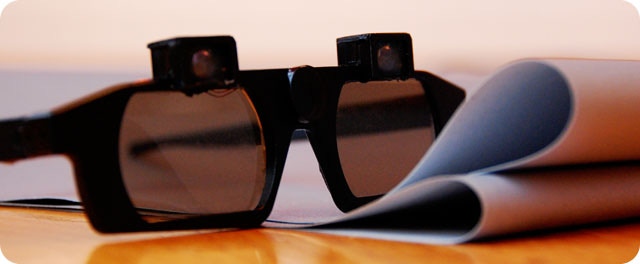
The future of CastAR, an ambitious augmented reality system that began life in Valve's hardware labs five years ago, is now in serious doubt. A bleak Monday Tweet from a former CastAR staffer was followed by Polygon's Brian Crecente reporting a full company shutdown.
Citing unnamed "former employees," Polygon reported that the hardware maker's primary finance group pulled all funding last week. This was allegedly followed by a full staff layoff and an announcement that the company's remaining assets would be liquidated.
As of press time, neither CastAR nor its affiliated developer, Eat Sleep Play, has posted any confirmation of shut downs or liquidation. Ars Technica has reached out to CastAR co-founders Jeri Ellsworth and Rick Johnson. We will update this report with any response.
CastAR began life in 2012 when Ellsworth was hired to apply her years of hardware-hacking expertise to Valve's new experimental, hardware-focused operation. There, she focused primarily on a glasses-based system that projected "augmented reality" imagery via a tiny projector so that any flat, textured sheet would appear to have objects coming out of it. Valve ultimately chose not to pursue or manufacture Ellsworth's creation and opted instead to focus on what would become SteamVR. However, Valve made the unusual decision to let Ellsworth leave the company with full rights to pursue her invention.
Johnson left Valve shortly afterward to join Ellsworth, and the duo began promoting CastAR via a successful Kickstarter campaign. Once the company landed serious financial backing, CastAR decided to refund Kickstarter backers' money—meaning, those backers received free CastAR developer kits.
While the hardware's early demos looked impressive, Ars Technica staffers were repeatedly assured that technical issues like projector refresh rates, controller accuracy, and image clarity would receive fixes and attention. These appeared to come slowly, and CastAR may have simply failed to keep pace with consumer-level VR and AR systems over the past few years.
reader comments
32